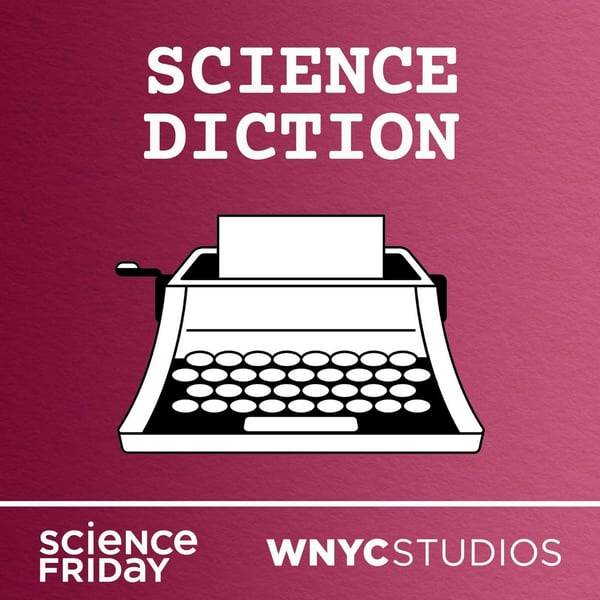Honeymoon: A Bittersweet Beginning
Science Diction
Science Friday and WNYC Studios
4.8 • 610 Ratings
🗓️ 3 August 2021
⏱️ 10 minutes
🧾️ Download transcript
Summary
Transcript
Click on a timestamp to play from that location
| 0:00.0 | The other day we got an email from a listener, Eric, producer Ella Fetter. Would you like to read it? |
| 0:06.6 | I would like to read it. Okay. Hi, I absolutely love the science fiction podcast. Definitely excited when a new episode comes up in my pocketcast's app. We can also be heard on Stitcher, Apple Podcasts, Spotify, and more. Thank you, Johanna. I was wondering if you could explore the origin |
| 0:22.8 | of the word honeymoon. It seems like another one of those words where everyone knows what it means, |
| 0:27.4 | but has no clue where it came from. Keep up the great work, Eric Vanandi. Honeymoon. It seems like |
| 0:35.4 | word that would have a lovely origin story, doesn't it? Honey, moon? What could |
| 0:41.2 | be lovelier? I'm imagining it started with a kind of wedding celebration, where you dance under the |
| 0:47.6 | moonlight and spoon-feed each other honey from those bare-shaped jars, which would make the dancing |
| 0:53.2 | tricky, but not impossible, |
| 0:54.9 | for those in true love's thrall. And then, I imagine, the honey dancing became an extended two-week |
| 1:01.4 | honeymoon rave, and then a vacation to Cancun. And finally, a pejorative, a metaphor, the honeymoon |
| 1:09.8 | phase. A good time that just doesn't last. |
| 1:14.7 | Maybe you pictured something like that, too? |
| 1:18.2 | Here's what we actually found out. It wasn't until about the late 1700s that the word honeymoon meant a trip that you take after your wedding. |
| 1:28.9 | As for literal honey, |
| 1:34.2 | a lot of people claim there was an old tradition for newlyweds to drink mead, which is made from honey. I really wish that were true, but alas, we were not able to confirm it. The real |
| 1:42.3 | origin is a little more bittersweet. So according to the Oxford |
| 1:46.7 | English dictionary, the word honeymoon from the start described a kind of love that wanes, as the |
| 1:53.9 | moon does. Another early interpretation that's perhaps even more glum was love that lasts no longer than a month. So the moon in honeymoon |
| 2:04.5 | is a direct reference to lunar cycles, as in a month. And honey, presumably, is the sweetness of |
| 2:11.7 | that time. The first time honeymoon showed up in print was in 1546 in a John Haywood poem. |
| 2:19.1 | As a wealth for wantonness in and out whips, so play at these twain, as merry as three chips. |
| 2:25.8 | Lexi Attia, Ph.D. student in medieval studies at the University of Toronto, reading a little excerpt for us. |
... |
Please login to see the full transcript.
Disclaimer: The podcast and artwork embedded on this page are from Science Friday and WNYC Studios, and are the property of its owner and not affiliated with or endorsed by Tapesearch.
Generated transcripts are the property of Science Friday and WNYC Studios and are distributed freely under the Fair Use doctrine. Transcripts generated by Tapesearch are not guaranteed to be accurate.
Copyright © Tapesearch 2025.

